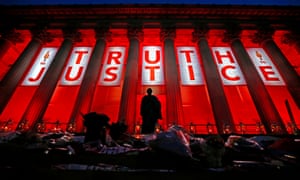
Six years on from the scandal that rocked the world of newspapers, few people are still thinking about Lord Justice Leveson and his inquiry. But the resulting legislation could be on the verge of taking hold with chilling effect. And my colleagues and I at local papers in the UK are worried. Really worried.
On the face of it, the phone hacking of the royals and celebrities may seem a world away from the kind of fare your local paper serves up. Think of them and you might think of summer fetes and cats stuck up trees, but they play a very real role in any democracy. Holding corrupt councillors to account, challenging unscrupulous property developers and making sure court cases are heard in public.
Last week Leeds city council apologised to the Yorkshire Post after it tried to withhold the names of four of its councillors who failed to pay council tax. Without the tireless reporting of the local paper, that may never have come to light.
The Liverpool Echo was a peerless advocate for the 96 victims of the Hillsborough disaster, consistently pushing for an inquest into the tragedy to be reopened. Throughout the inquest, despite the dwindling resources of local papers, reporter Eleanor Barlow was present for all 267 days of evidence over two years.
Local papers have a connection to their communities that simply cannot be reproduced by other media sources. The Argus, Brighton’s long-running local, was the first to notice, and report on, issues with Southern Rail services, which have now ballooned into a scandal, as unions and rail bosses continue to clash over strike action.
Without a committed local newspaper, criminals would go through the court system without being identified, councils would be able to make decisions on cuts without outside scrutiny and people wouldn’t be able to keep up-to-date with events in their communities.
But now that may all be under threat from the spectre that is section 40 of the Crime and Courts Act. The legislation was drafted following the conclusion of the Leveson inquiry in 2012, but the government is now consulting on its implementation, closing tomorrow.
Section 40 would mean that any newspaper that fails to sign up to a regulator backed by a royal charter could be forced to pay its opponents’ legal costs in libel cases, even if it wins. This could mean, for instance, that vexatious property developers could sue papers for printing legitimate criticism, knowing there is very little financial risk in doing so. Vexatious claims could have a crippling effect on local and regional papers, already under an unprecedented level of financial pressure.
Currently the only organisation fitting the royal charter criteria is Impress – which has strong financial ties to Max Mosley, who has every reason to hate the press. Senior figures at Impress have also been caught out on social media expressing their hatred for newspapers, chiefly the Daily Mail.
The majority of national newspapers, with the exception of the Guardian and the Financial Times, have signed up to the Independent Press Standards Organisation (Ipso), which was set up after Leveson to replace the Press Complaints Commission and has the power to fine papers as much as £1m. Ipso has made clear that it views the royal charter as the first step towards state press regulation, and won’t be signing up.
There is serious concern among local newspaper journalists that the threat of punitive legal costs could curtail our capability to engage in public interest reporting of the sort the Yorkshire Post did in Leeds. The Sunday Times said last week that the paper may not have published its Lance Armstrong doping stories under the proposed system.
It is clear that the sort of crime and wrongdoing that went on at the News of the World, and others, prompting the Leveson inquiry, was unacceptable and something needed to be done. But the fact is that the overwhelming majority of journalists in the UK don’t act like that and would not act like that. Please don’t punish us all for the crimes of the few.